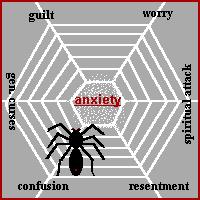Asking for Support: Getting the Help You Need – Part 2
by Dale & Juanita Ryan | see: Part 1
We resist getting help

In spite of the abundance of God’s love and grace and the many ways in which love and grace are available to us, we do not easily reach out for the help we need. Even when we have acknowledged our need for help, we may find ourselves hesitating, finding excuses, resisting. Resistance to getting help is often the result of a mixture of fear and despair and shame.
Fear
It can be frightening to get help. In the process we feel vulnerable and exposed. Jim’s Dad had made cutting remarks about him all his life. Jim was so accustomed to hearing that he was lazy and stupid and irresponsible that every time he shared in his support group, he expected to hear these same hurtful comments in response. Even though people didn’t respond this way, Jim imagined that everyone must be privately thinking these things about him. As a result, he would sometimes begin to share only to freeze with fear and find himself unable to talk.
Asking for Support: Getting the Help You Need – Part 2 Read More »








 A Christian friend once told me, “Well, why even talk about feelings, because you can’t trust them anyway. The Bible says, Have faith and don’t trust your feelings.” Well, that’s not really a healthy attitude at all, because feelings are real. Denial is all of these repressed and stuffed emotions, and part of sobriety and getting better means that all of a sudden all of the pain that has been pushed down. And anger, and everything else that has been there, is going to start rising to the surface, and these people will start feeling depression and loneliness and fear. And we need to be prepared to hear those things and to respond to them in a supportive, kind way. It doesn’t mean that — and some of those feelings are not accurate at all, but still need to be respected and accepted. It has to be there.
A Christian friend once told me, “Well, why even talk about feelings, because you can’t trust them anyway. The Bible says, Have faith and don’t trust your feelings.” Well, that’s not really a healthy attitude at all, because feelings are real. Denial is all of these repressed and stuffed emotions, and part of sobriety and getting better means that all of a sudden all of the pain that has been pushed down. And anger, and everything else that has been there, is going to start rising to the surface, and these people will start feeling depression and loneliness and fear. And we need to be prepared to hear those things and to respond to them in a supportive, kind way. It doesn’t mean that — and some of those feelings are not accurate at all, but still need to be respected and accepted. It has to be there.